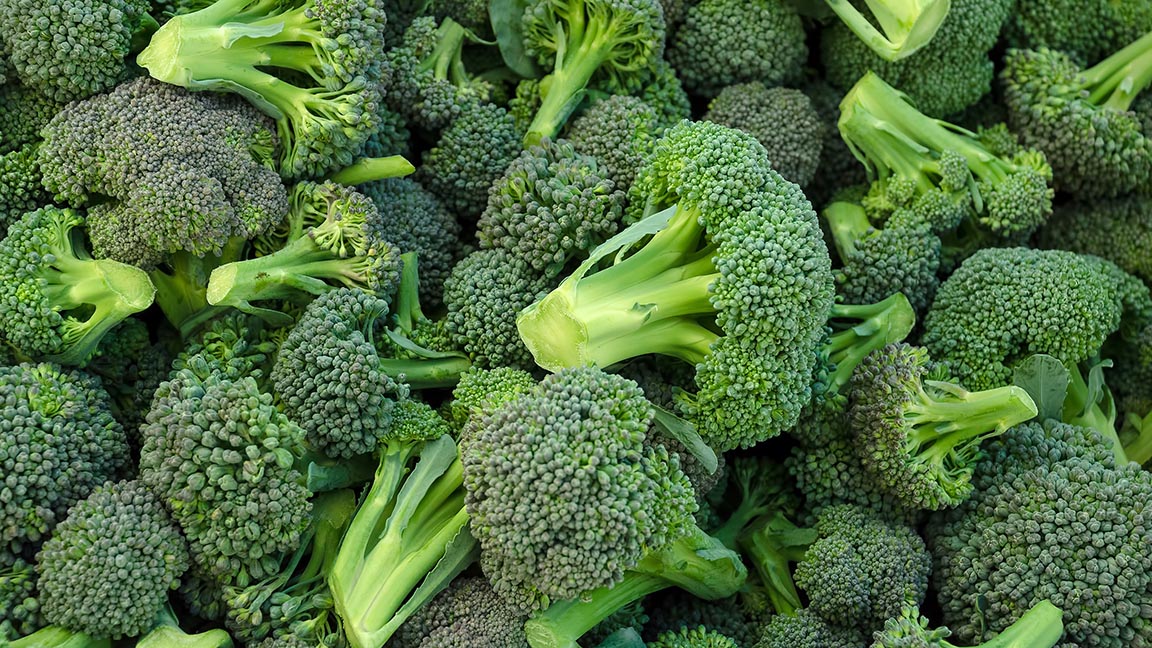You’ve probably heard you should eat your broccoli, but you might be surprised to learn just what you’re getting from this power-packed vegetable.
While broccoli has long been celebrated for antioxidants, fiber, and vitamins and minerals, it’s also a good source of protein.
“Broccoli is a great all-around vegetable,” says Stephanie May, a registered dietitian with Tidelands Health. “We encourage people to incorporate it into their regular diet.”
Protein is a crucial building block of our bodies, May says. It’s involved in just about every function the body performs.
“But there’s a common misconception that only meat and animal products are good sources of protein,” May says. “Actually, when you look at it on a per-calorie basis, broccoli is just one of many vegetable that offer significant amounts of protein.”
One cup of chopped raw broccoli contains about 30 calories and 2.5 grams of protein, according to the U.S. Department of Agriculture, and it’s not even the most protein-rich vegetable per cup.
Here’s how broccoli stacks up to one cup of some other raw vegetables (and one taproot), according to the USDA:
- Kale: 8 calories, 0.7 grams of protein
- Carrots: 52 calories, 1.2 grams of protein
- Brussels sprouts: 38 calories, 3 grams of protein
- Spinach: 7 calories, 9.9 grams of protein
- Asparagus: 27 calories, 3 grams protein
Broccoli and other protein-rich vegetables are healthy choices for everyone, particularly those who are watching cholesterol or trying to lose weight, May says. Broccoli contains fiber, which helps remove cholesterol from the body and helps keep you feeling satiated, or full.
Additionally, vegetables deliver protein without the cholesterol and fat in meat products, she says.
But there’s a catch.
“Broccoli is a good source of protein per calorie, but you’d need to eat huge amounts of it to meet your daily protein requirement,” May says.
According to the USDA, the recommended daily intake of protein is 50 grams per day for a 2,000-calorie diet.
That’s about 20 cups of broccoli.
You’ll also have to turn to other protein sources to make sure you’re eating “complete” proteins, those that contain enough of the eight essential amino acids, May says. Broccoli, like most other vegetables, doesn’t contain enough of each of those acids, so it’s referred to as an “incomplete” protein.
Examples of complete proteins include meat, poultry, fish and dairy products.
A 3-ounce serving of 80-percent lean ground beef (cooked) contains 230 calories and 23 grams of protein, according to the USDA. The same serving size of Atlantic salmon contains 121 calories and 17 grams of protein.
A 3-ounce serving of cheddar cheese is less friendly to the waistline, with 344 calories and 19 grams of protein.
For a vegetarian to consistently get all 8 essential amino acids, it is important to include a variety of plant-based proteins, such as soybeans, tofu, tempeh, beans nuts and nut butters, seeds, brown rice and quinoa.
An ounce of soy protein, which is isolated from the soybean and made from soybean meal, contains 95 calories and 25 grams of protein. A cup of quinoa contains 222 calories and 8 grams of protein.
“There are many great sources of protein you can incorporate into your diet,” May says. “I encourage everyone to look to plant-based protein sources in addition to the traditional meat, egg, and dairy sources to achieve a well-balanced diet.”




